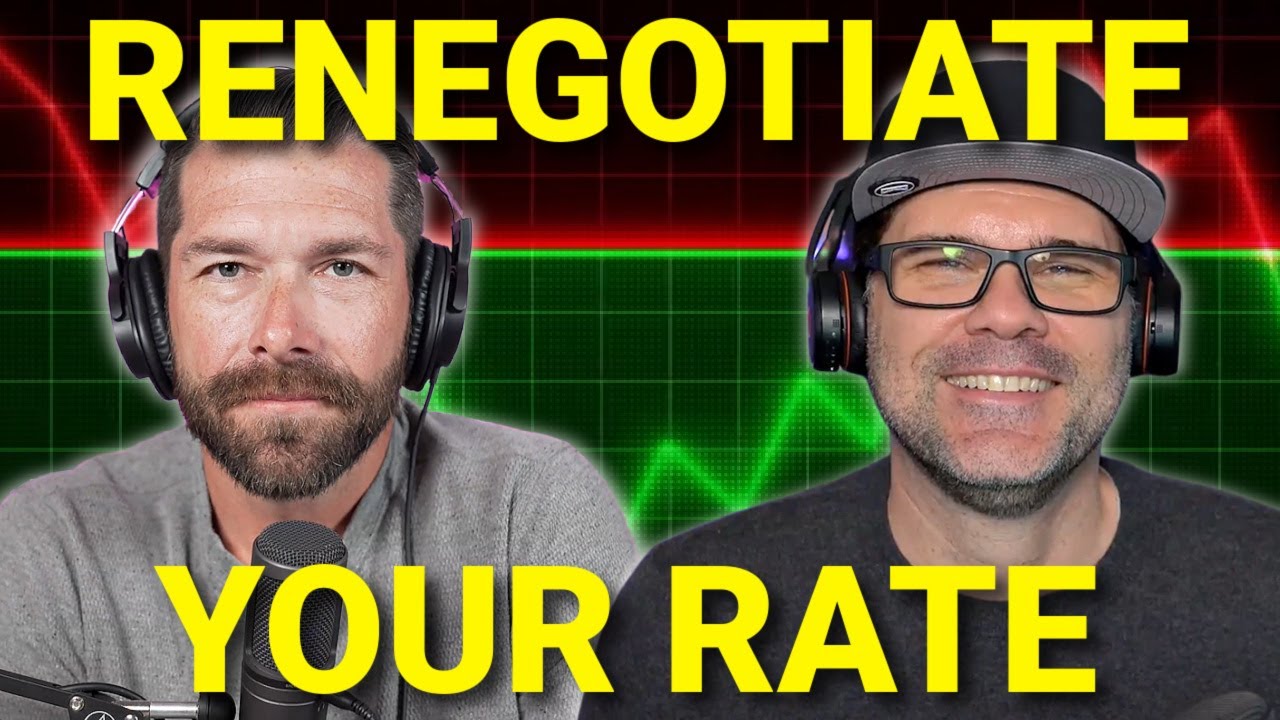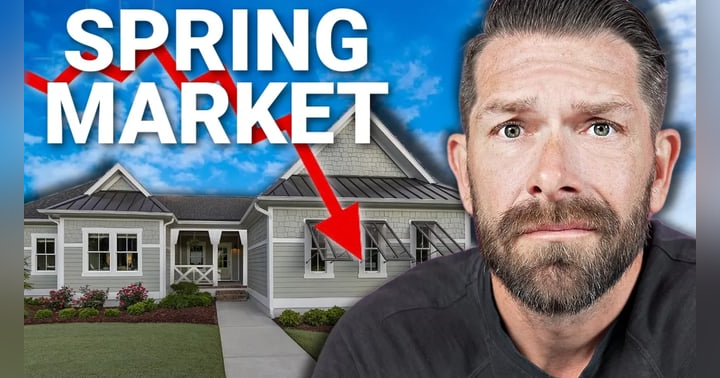Lower Your Interest Rate When Mortgage Rates Drop

Lower Your Interest Rate When Mortgage Rates DROP
Learn how to protect your wallet and take advantage of market trends during your home loan process.
Want expert help lowering your interest rate? Start here.
What Happens If Rates Drop After You Lock Your Mortgage?
You've probably heard the advice: "Lock in your mortgage rate to avoid rising rates." But what happens if mortgage rates drop after you've locked in? Do you lose the opportunity to save, or can you renegotiate for a better rate?
The good news: Many lenders do offer ways to take advantage of lower rates after a lock. The process is called a float down or a rate renegotiation.
In this guide, we’ll break down everything you need to know to make smart mortgage decisions, avoid costly mistakes, and confidently navigate rate movements during escrow.
What Is a Mortgage Rate Lock?
A mortgage rate lock is an agreement between you and your lender that secures your interest rate for a specific period—30, 45, 60, or even 90 days. It's like insurance: even if rates spike during that time, your rate won't change.
Why Lock a Rate?
- Protect yourself from rising rates
- Add predictability to your monthly payment
- Allow for budgeting during the buying or refinancing process
"The reason I'm locking my loan is to protect myself against volatility in rates going higher." – Jeb Smith
What Is a Float Down Option?
A float down is a lender's policy that allows you to adjust your rate lower if market rates drop after you've locked.
But here's the catch:
- Not all lenders offer float downs.
- There are often eligibility rules and costs.
- There must be a significant drop in the market to trigger eligibility.
How Big of a Drop Do You Need?
Most lenders require a market improvement of 100 basis points (1%), which typically equates to about a 0.25% drop in interest rate, to trigger a renegotiation.
But remember:
- There's usually a cost of 50 basis points (0.5%) to execute the float down.
- So, a small drop in rate may not be worth it unless the savings are significant.
Example:
If your $400,000 loan has improved by 100 basis points, you might pay 0.5% (= $2,000) to float down. If this saves you 0.25% on your interest rate, it may be worth it depending on how long you keep the loan.
Are There Free Float Downs?
Yes, but they're rare. True free float downs typically only happen with portfolio lenders (like small credit unions or community banks).
Most big lenders price the float down into the deal. That means you may pay for it indirectly through slightly worse pricing upfront.
How Often Can You Float Down?
Not often. In most cases:
- You can only float down once.
- It must be close to the closing date.
- You need to meet specific thresholds.
"You don't want to jump the gun. This isn't something you can do multiple times." – Josh Lewis
Who Watches Rates—You or Your Loan Officer?
Both should be watching. But let’s be real: Most homebuyers aren’t tracking basis points and secondary market movements.
That’s why it’s crucial to work with someone like Josh Lewis, who follows daily rate trends, technical market indicators, and float down policies across multiple lenders.
"Most of the borrowers who are eligible are aware… but your lender should also be watching for you." – Josh Lewis
Does This Happen Often?
No—true float downs are rare.
For a renegotiation to make sense:
- The loan must have been locked early.
- The market must improve significantly within your loan window (typically 21–45 days).
- The rate drop must meet the lender’s internal guidelines.
So while the idea sounds great, don't rely on float downs as part of your plan. Think of them as a bonus if the stars align.
Key Takeaways
- Lock your rate when you feel comfortable with the monthly payment.
- Ask your lender about float down options before locking.
- Work with professionals who know the market and can advise you smartly.
- Don’t obsess over perfection—aim for a smart, well-informed decision.
"You getting the absolute best rate on the absolute best day is almost impossible." – Josh Lewis
Final Advice: Don’t Obsess, But Be Informed
You can't time the mortgage market perfectly. Rates move daily—sometimes hourly. But you can protect yourself with the right strategy.
- Know your lender’s policy.
- Stay informed, not obsessed.
- Work with someone you trust.
Want help from someone who watches this for you?
👉 Click here to talk to a pro
More Resources
Buy Right. Borrow Smart. Build Wealth.


